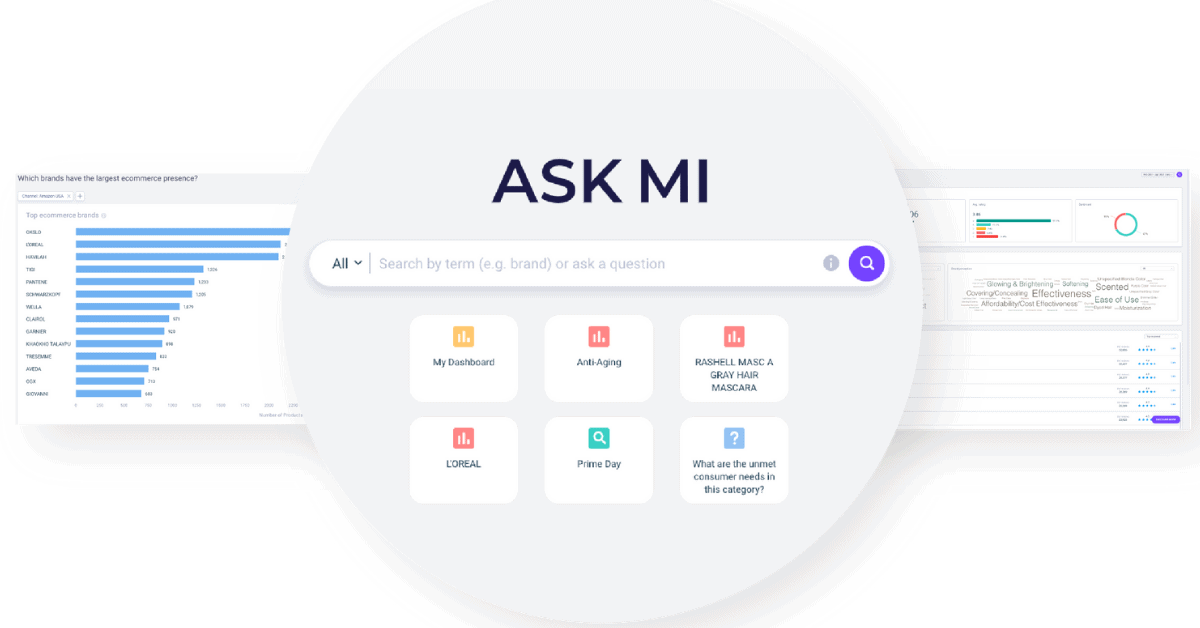
Kate DuBois
General Manager of Market Intelligence @ Skai

Kate DuBois
General Manager of Market Intelligence @ Skai
An adapted version of this article originally appeared on NASDAQ.

Many new technologies start out as niche products or services that only a few can afford or understand before eventually being democratized for all. Today, we are witnessing a shift towards the democratization of data analytics. Once the province of data specialists and executives only, access to data is becoming increasingly decentralized to allow decision-makers across the business to understand and make use of huge quantities of data.
The path toward data democratization is similar to the path we’ve all already taken to widespread use of the Internet, with similar opportunities.
The Internet as we know it today started out as local and global computer networks in the 1960s, used mostly by specialized computer scientists and national agencies. The following decade saw the expansion of computer network interconnectivity through the development of new linking protocols, though the user base remained largely the same.
Throughout the 1980s, the PhoneNet system—a network built using dial-up phone lines—made it possible for even more people to access the Internet and send the first international emails, although you still needed expensive computer equipment and reliable connections to access anything.
The real democratization began in the late 80s and early 90s: Sir Tim Berners-Lee’s invention of HTML, HTTP, URLs, and the World Wide Web made it possible for the Web to scale rapidly. The first web browser, also invented by Berners-Lee, opened up the Internet to average people with no special computer science skills. By 1995, consumer websites like Amazon, Yahoo, and eBay were live and the World Bank reported that about 9.24% of Americans identified themselves as Internet users. This year, 93% of American adults are online.
The democratization of the Internet was thanks to two forces working in tandem: technological innovation and user demand. Today, we’re at a crossroads in data analytics where both of these forces are ramping up. There’s more data out there than ever before, and it’s growing rapidly.
In response, the data analytics field has progressed to help businesses make sense of vast quantities of unstructured data. Advanced solutions like Skai can collect the external data sources that are relevant to a business, extract meaningful context from them to explain both what is happening as well as why, and then make those insights available and understandable so that leaders can take informed action. Increasingly, those leaders recognize that their entire business would improve if everyone within it had access to the same single view of information.
Some of the benefits of data democratization include:
With these benefits in mind, it’s no wonder that a recent Google Cloud and Harvard Business Review survey of industry leaders showed that 97% of those surveyed believe organization-wide access to data and analytics is critical to the success of their business. However, only 60% believe their organizations are effectively distributing that access today. An Exasol survey of 500 executives and data professionals found that 90% of respondents are prioritizing data democratization for their companies.
The demand is there. But do we have the technological tools to make data accessible to all?
There are good people, process, and technological reasons why many organizations have yet to fully democratize access to their data, including:
Data dashboards and visualizations have popped up as possible solutions to these challenges. The Exasol study mentioned earlier showed that 82% of respondents use dashboards to communicate insights across their organizations. And it’s easy to see why. Dashboards can be introduced to every team’s process, eliminating the siloing of information. Their simplicity means that you don’t have to be a data expert to understand them. But that simplicity also means that the data that’s being shared is pretty shallow, without enough background or context to answer complex business questions.
That’s just one reason why many of the Exasol study respondents reported that their organizations routinely disregarded the dashboards they had in place. The other reasons? Too time-consuming to interpret, too much information overall, and not tailored enough to individual needs. These can all be summed up into one criticism: data dashboards don’t tell stories, and the stories are what’s key to communicating data and analytics results.
People are curious, and they think in terms of questions; this is what made the invention of the web browser and the Google search bar so revolutionary in the democratization of the Internet. Internet users could search for the web pages and information that interested them, rather than coming to the Web with expert knowledge of its contents. Data analytics needs a similar search-focused tool to power true democratization.
Ask MI is a new, AI-powered search-based market intelligence solution that delivers consumer and market insights into the hands of everyone in the business.
Ask MI works differently than other typical data dashboards to provide true data storytelling. Rather than passively reviewing data dashboards, users ask questions using a familiar search bar (like “What are consumers saying about my brand?”) and receive data-backed answers in seconds. Category-specific visual dashboards are tailored to specific business users in marketing, brand management, and product innovation, with total visibility into where all data comes from in the first place. Ask MI combines the power of big data and AI with the simple usability of Google to deliver easy-to-understand insights all in one place.
The addition of Ask MI to Skai’s commerce intelligence engine makes it possible to truly democratize data-driven decision-making. The Skai platform is a strong, future-proof foundation of robust data that’s harmonized into taxonomies so that all data speaks the same language. With that foundation in place, data insights are made actionable when presented as data-driven stories about business needs in an easy-to-use format.
Now everyone can make better decisions based on a single source of reliable, up-to-the-minute information from thousands of external data sources.
To find out how Skai can democratize data at your organization, contact us for a personalized demo.
You are currently viewing a placeholder content from Instagram. To access the actual content, click the button below. Please note that doing so will share data with third-party providers.
More InformationYou are currently viewing a placeholder content from Wistia. To access the actual content, click the button below. Please note that doing so will share data with third-party providers.
More InformationYou are currently viewing a placeholder content from X. To access the actual content, click the button below. Please note that doing so will share data with third-party providers.
More Information